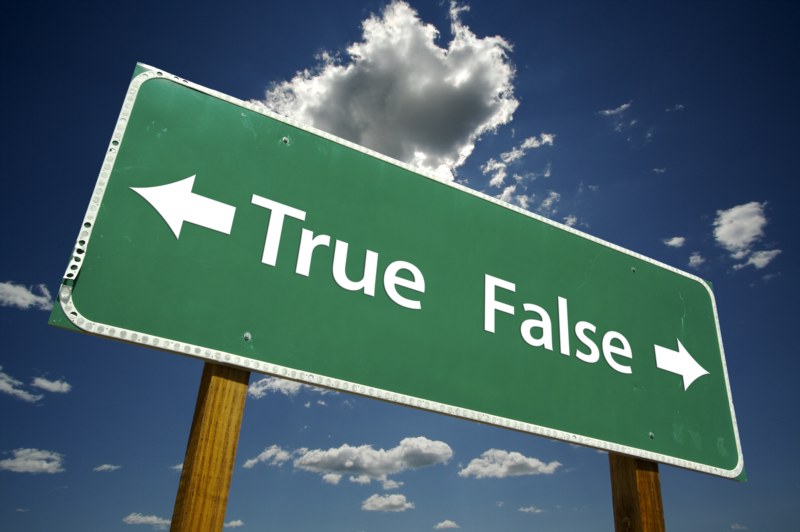This is part of a series called “Questions of Facts”. Click here to see the first.
 The term *factoid* was coined by Norman Mailer to express the idea that many things we believe to be true — and which normally go unchallenged — are products of the public media (radio, TV, newspapers, advertisers). Factoids are therefore statements made by the media and are about states of affairs. The statements are supposedly correct, or largely true. The media who circulate these may have other motives than keeping the public well-informed. According to Norman Mailer, they often (too often) pervert truth and do so for entirely self-serving reasons.
The term *factoid* was coined by Norman Mailer to express the idea that many things we believe to be true — and which normally go unchallenged — are products of the public media (radio, TV, newspapers, advertisers). Factoids are therefore statements made by the media and are about states of affairs. The statements are supposedly correct, or largely true. The media who circulate these may have other motives than keeping the public well-informed. According to Norman Mailer, they often (too often) pervert truth and do so for entirely self-serving reasons.
The beneficiary of these so-called news items is usually someone who is selling a product or a service which supposedly “deals” with the problem identified by the factoid. Example: a news item appears which creates a rumor that our waters are being poisoned and are therefore unsafe to drink. This message creates a demand for bottled pure waters! The proposed remedy hardly deals with the problem of how a healthy fresh water supply can be ensured.
Such news items are often couched in convincing words, designed to persuade everyone to accept what they hear or read as being true and trustworthy statements. We — the public — are being “had”!
The word *factoid* itself is a fusion of two sources: the word fact, which derives from the Latin participle factum — “made” — and the Greek ending -oid, meaning “to be like.” *Factoid* therefore refers to a statement which is fact-like, but not a fact. It is faulted as a statement of fact, and therefore not true in the sense that facts supposedly are.
Let’s look at the logic of the term *fact*. It is generally assumed that a fact asserts something that is true. But clearly not all statements are truth-carriers. “To be or not to be” is the expression of a quandary. “Two eggs, sunny-side up” is part of a request. “Two plus two makes four” is arithmetic and follows a rule of logic. “I am a man” is a declaration. “I am feeling happy as a lark” is evocative and an analogy.
But “Mary Wollstonecraft wrote the novel Frankenstein” is a claim to fact — and as far as I know is a justified statement, whereas the claim “Bernard Shaw wrote Lives and Loves of Richard Wagner” is a statement of fact which has not been justified — and is false. He did write The Perfect Wagnerite, which neither deals with Wagner as a person nor is it an adoration of the writer/composer, but an amusing critical appraisal of his music-dramas.
Statements of fact — or factual statements — are always claims made by someone or by a group of persons, and which may result in one of these outcomes:
- The statement is justified by the evidence submitted in support of the claim made, or
- The claim, as stated, cannot be supported.
But what about claims whose support base has fallen into quick-sand over time — as often happens? Remember the thesis that the earth is stationary relative to its sun, or that light travels through an ether. These two statements are today regarded as “has-been facts.” The evidence for them eroded over time for reasons which can be stated. These represent cases of justified corrections, or as Popper used to say, of falsifications.
Ordinary statements, regarding every day matters, often get corrected in the light of new “revelations”, as when we correct the view widely held that all swans are white. There are to-day an estimated 500,000 black swans worldwide — and they are not an endangered species.
However, statements of fact are either true or false: if true, we continue to call them facts; if false, we discard them, perhaps change their label from *true* to *false*, or employ some other strategy to indicate that what was once thought was a statement of truth is now highly questionable and should be rephrased in a way which preserves its “kernel of truth” or declares these to be outright “fallen”.
I reserve the term *factoid* for a “fallen fact” or, to be kind, for a “retired fact,” but do not call these instances deliberate lies. Honor the fallen, understand why they have suffered their fate, but don’t throw them dishonored onto a dung heap. One can learn much from mistakes honestly made.

 Note: It is not the statement that is fallible or infallible, but the person who makes the statement. I personally do not know of anyone who is a specialist in infallible statements – although I know many who ACT AS IF they were. It is a self-description, an affectation at worst. Some people, in moments of hero-worship, may claim that Mr. X or Miss Y is always correct in what they say or claim. But this only passes the buck. The person making such a claim is obliged to demonstrate that the claim itself is always true – that indeed it is they that are infallible in their judgements. It has nothing to do with any particular fact and its truth-value.
Note: It is not the statement that is fallible or infallible, but the person who makes the statement. I personally do not know of anyone who is a specialist in infallible statements – although I know many who ACT AS IF they were. It is a self-description, an affectation at worst. Some people, in moments of hero-worship, may claim that Mr. X or Miss Y is always correct in what they say or claim. But this only passes the buck. The person making such a claim is obliged to demonstrate that the claim itself is always true – that indeed it is they that are infallible in their judgements. It has nothing to do with any particular fact and its truth-value.